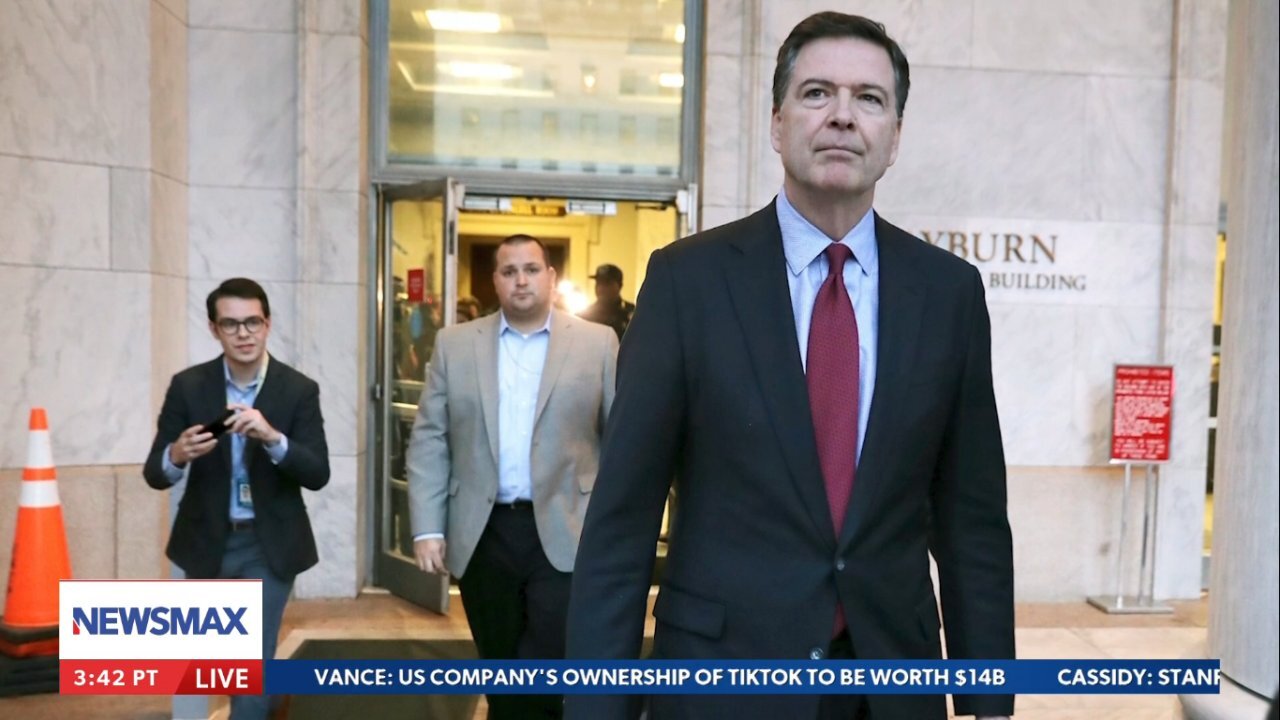Premium Only Content

No one is above the law, not even James Comey - 9/25/2025
"No one is above the law." The principle is a fundamental concept of the rule of law, meaning that everyone, including those in positions of power, is subject to and must obey the law. This idea is central to the idea of a just society and a democracy, where laws are made and enforced according to established procedures, not by the arbitrary will of rulers.
Equal Justice Under the Law:
The rule of law ensures that everyone is treated equally before the law, regardless of their position or power.
Accountability:
It means that individuals and institutions are held accountable for their actions and must comply with the law.
Independent Judiciary:
An independent judiciary is essential to ensure that the law is applied impartially and fairly.
Clear and Fair Processes:
The rule of law requires clear and fair processes for making and enforcing laws, ensuring that everyone understands their rights and obligations.
Protection of Rights:
It also guarantees that fundamental human rights are protected.
Limited Government:
The rule of law is closely linked to the concept of a limited government, where the power of the government is constrained by law and the constitution.
Historical Significance:
The concept of "no one is above the law" has deep roots in history, with legal scholars like Henry de Bracton emphasizing the importance of the law even for the king.
Contemporary Relevance:
The principle continues to be a topic of discussion and debate, particularly in the context of presidential immunity and other issues involving powerful individuals
-
 LIVE
LIVE
Akademiks
1 hour agoJay Z and Pusha T in the Epstein Files? NLE Choppa vs Baby moms. YE is bak? LIL BABY tryna BACK OUT?
1,501 watching -
 1:11:29
1:11:29
Man in America
6 hours agoFriday’s Silver BLOODBATH: The Paper Ponzi Is Breaking as Bullion Banks Lose Control
46.3K4 -
 3:32:44
3:32:44
MattMorseTV
4 hours ago $15.38 earned🔴Bannon x Epstein INTERVIEW.🔴
39K46 -
 LIVE
LIVE
Tundra Tactical
2 hours ago $0.45 earned🛑🚨Dan Wesson DWX GIVEAWAY Announcement!! 🚨🛑 Tundra Tactical Recaps Shot Show 2026
256 watching -
 LIVE
LIVE
DLDAfterDark
3 hours ago $0.29 earnedThe Truth About Forced Reset Triggers - Rare Breed Drama & Tim Hoffman's Super Safety
172 watching -
 17:42
17:42
WhatCulture - Film
1 day ago $0.31 earned18 Movie Mistakes You Can Never Unsee
5.63K -
 4:16
4:16
RidiculousRides
1 day ago $0.18 earnedFrom Lincoln to Legend: Inside the Build of America’s Wildest Off-Road Limo
5.85K1 -
 2:50:23
2:50:23
Barry Cunningham
4 hours agoLIVE TONIGHT: There's Something BIG Going On In Fulton County And The Democrats Are FREAKING Out!
64K55 -
 41:34
41:34
Stephen Gardner
4 hours agoTim Walz is DONE! MN Fraud NIGHTMARE Explodes!
20.7K52 -
 9:34:37
9:34:37
Plan ₿ Forum
9 days agoPlan ₿ Forum El Salvador 2026 – Day 2 Live from the WAGMI Stage
424K18